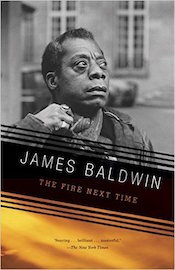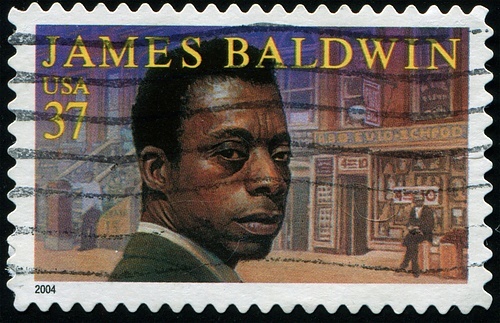Every Fourth of July, Americans are treated to more than enough exceptionalist exuberance and blind reverence of the framers and signers of the Declaration of Independence. We will hear plenty about the courage of the revolutionaries, the eloquence of Jefferson, and amazing resilience of our “city on a hill.”
Every Fourth of July, my mind does not tend to dwell for too long on the virtues of figures like John Adams and Thomas Jefferson. Men such as these deserve credit for their statesmanship and credit they shall get. But my mind tends to drift toward later patriots like Frederick Douglass, who so eloquently revealed the hypocrisy of the United States in his 1852 speech, “What to the Slave is the Fourth of July?” In this classic jeremiad, Douglass treated his audience to a rhetorical fireworks show as he challenged them to live up to the “saving principles” of the Declaration of Independence.
Lately, I’ve been thinking about another American patriot, who we rarely, if ever, talk about when we discuss our country’s greatest champions of freedom: the African-American essayist, novelist, playwright, and activist James Baldwin. It may seem odd to invoke Baldwin on a day such as the Fourth of July. After all, Baldwin was an artist who often maintained a critical distance from conventional politics. But when I think about the Fourth of July, I ponder the meaning of patriotism, and, I believe, James Baldwin was a great patriot.
“Any honest examination of the national life,” Baldwin wrote in 1959, “proves how far we are from the standard of human freedom with which we began.” Baldwin did not specify  what he had in mind when he referred to this “standard,” but I want to suggest that he had in mind the principles enunciated in the second paragraph of the Declaration of Independence: “We hold these truths to be self-evident, that all men are created equal, that they are endowed by their creator with certain inalienable Rights; that among these are the rights to Life, Liberty, and the pursuit of Happiness.” Baldwin was under no illusions about the men who framed these words or what those men intended to do with these words. He recognized that these words were not intended to apply to most people and he believed that the men who wrote them had motives that were more “commercial” than “moral.”
what he had in mind when he referred to this “standard,” but I want to suggest that he had in mind the principles enunciated in the second paragraph of the Declaration of Independence: “We hold these truths to be self-evident, that all men are created equal, that they are endowed by their creator with certain inalienable Rights; that among these are the rights to Life, Liberty, and the pursuit of Happiness.” Baldwin was under no illusions about the men who framed these words or what those men intended to do with these words. He recognized that these words were not intended to apply to most people and he believed that the men who wrote them had motives that were more “commercial” than “moral.”
And yet, Baldwin found something compelling enough about these principles that he thought they might be useful to us in the present. “The recovery of this standard,” he continued, “demands of everyone who loves this country a hard look at himself, for the greatest achievements must begin somewhere, and they always begin with the person.” Baldwin’s call for a “recovery of this standard” is nothing like the sort of “recovery” of the Declaration that will be urged at Tea Party rallies this weekend. Indeed, it is just the opposite. Baldwin wants us to recover this high standard of human freedom so that we will subject ourselves, and our country, to vigorous criticism. “If we are not capable of this examination,” Baldwin concluded, “we may yet become one of the most distinguished and monumental failures in the history of nations.”
We need not imagine what sort of angry response this would provoke from conservatives because Baldwin inspired many such responses during his own lifetime. The conservative icon William F. Buckley Jr., for example, called Baldwin an “America-hater” who was hell bent on “throwing over” American “civilization.” Buckley could not have been more wrong.
What Buckley did not understand about Baldwin’s critique was that it was not rooted in hatred, but in love. “Societies never know it,” Baldwin wrote in 1962, but “the war of an artist with his society is a lover’s war, and he does, at his best, what lovers do, which is to reveal the beloved to himself, and with that revelation, make freedom real.” It is precisely because “I love America more than any other country in the world,” Baldwin once declared, “and, exactly for this reason, I insist on the right to criticize her perpetually.”
Baldwin’s recovery of the principles of the Declaration of Independence, and his recasting of these principles as tools for self-examination, provide us with an important lesson about the meaning of freedom. Baldwin said that although freedom is often reduced to a slogan that can be shouted from podiums, it is actually “a complex, difficult – and private – thing.” Freedom, Baldwin argued, is far more than a mere political ideal. “If we can liken life, for a moment, to a furnace,” he wrote, “then freedom is the fire which burns away illusion.” The “great American illusion,” he wrote in 1961, is that we always have been and always will be the envy of the world.
This Fourth of July, let’s practice patriotism James Baldwin-style. Let’s reflect on the meaning of freedom more deeply than we usually do and let’s subject the country we love to the perpetual criticism she deserves. Only then will we live up to that high standard of human freedom with which this nation began.
